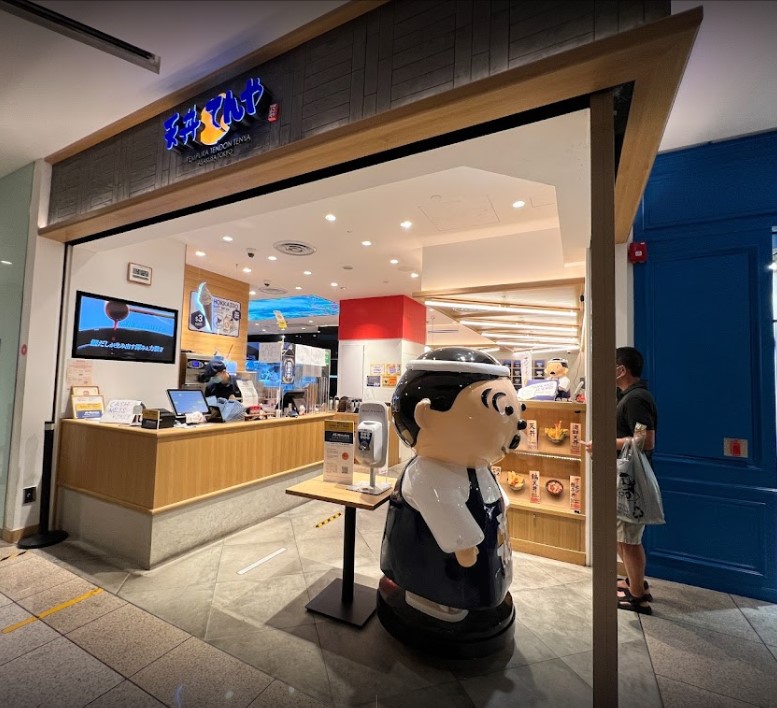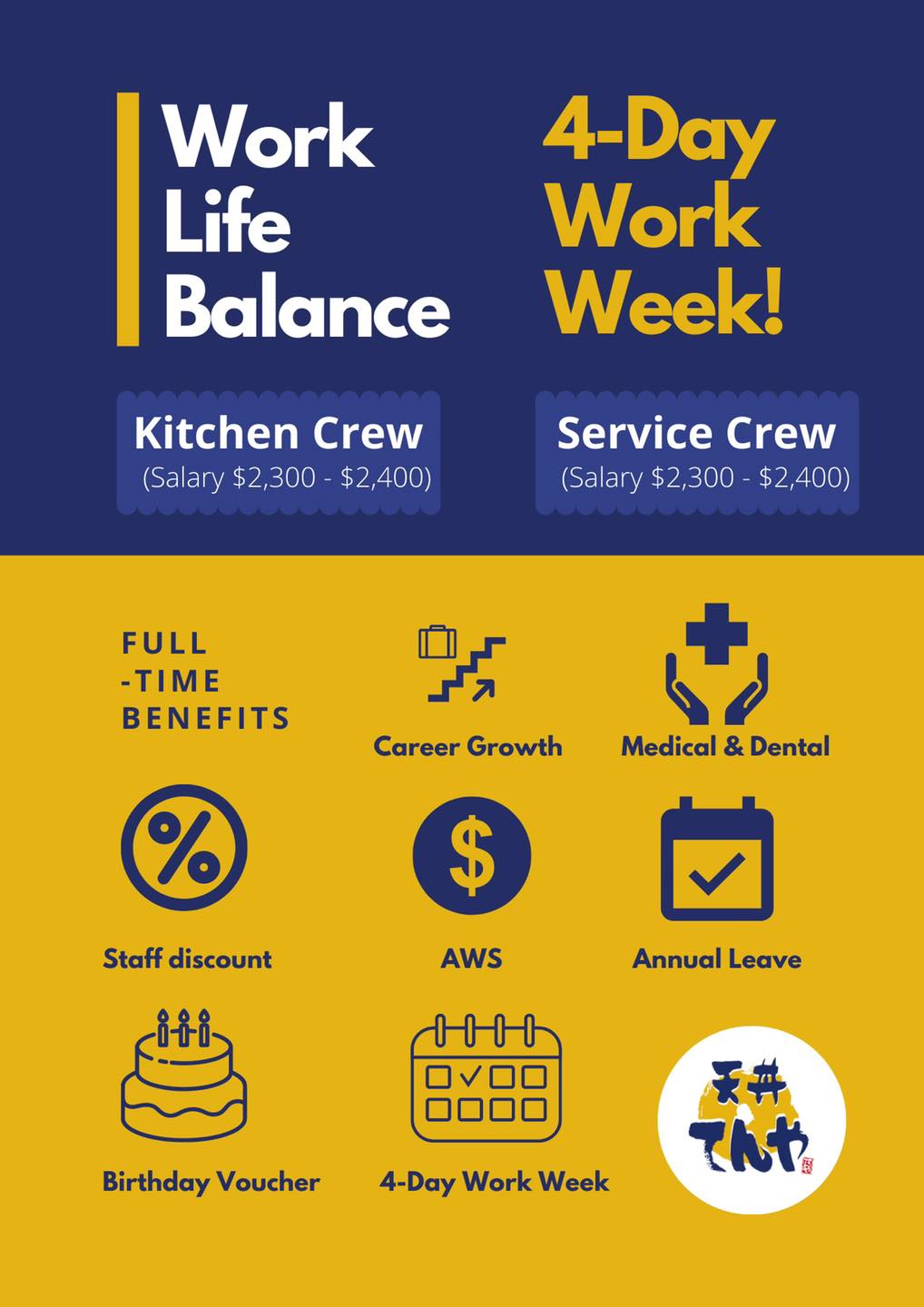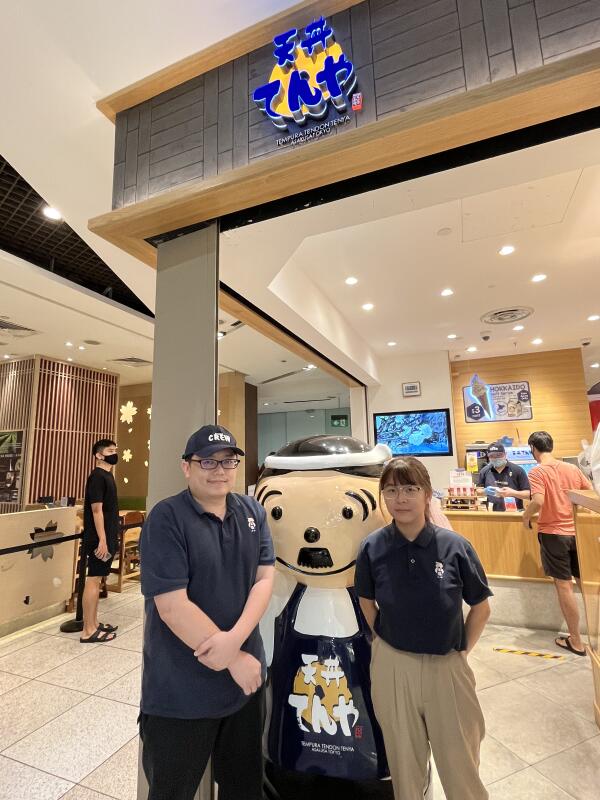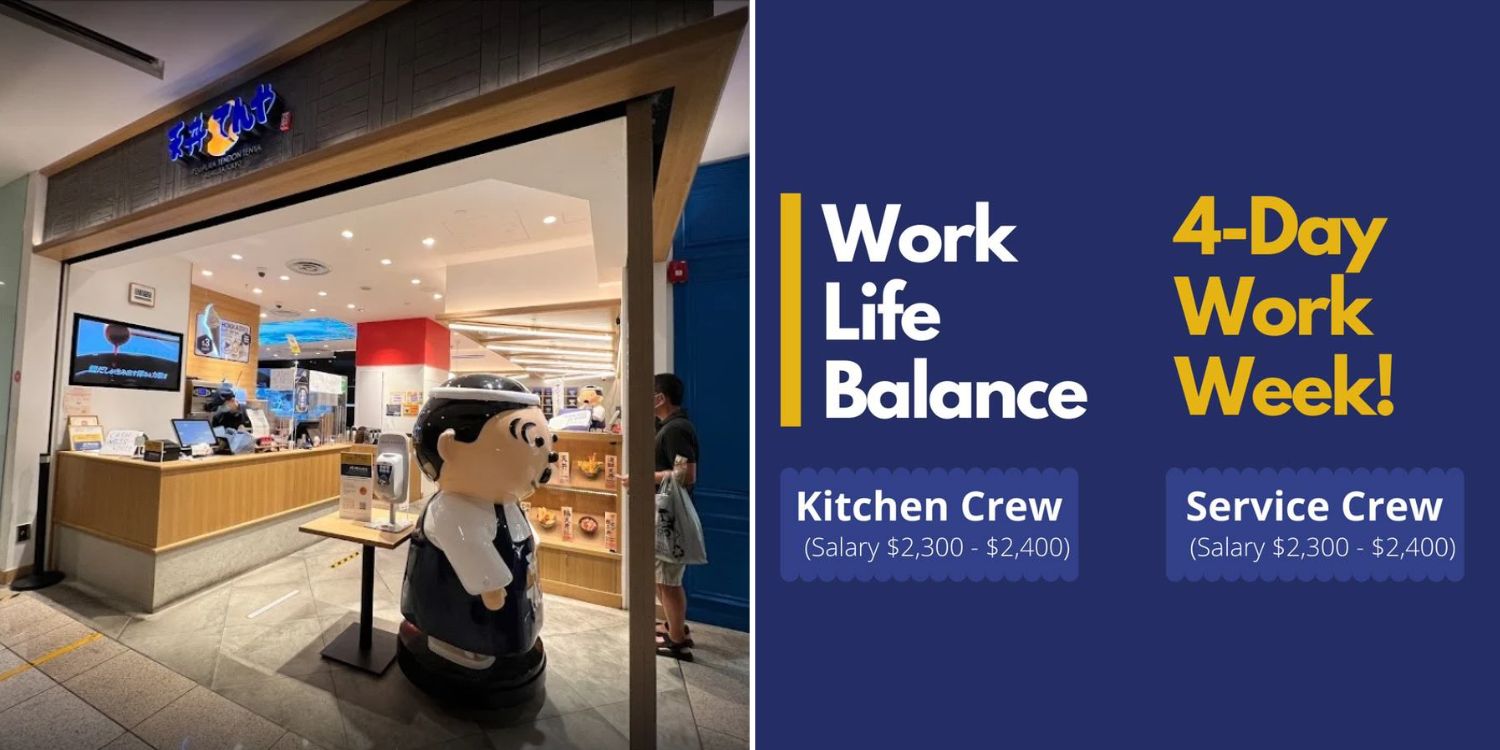Japanese Restaurant Tenya Singapore’s Staff Have 4-Day Work Week, Salaries Raised By 10%
The pandemic has caused a global labour shortage, partly due to demands for better working conditions among rank-and-file workers who realised they were actually quite important.
That goes especially for Singapore’s F&B industry, which was notorious for its manpower issues even before Covid-19.
Japanese restaurant Tenya Singapore, however, has found a solution that would make some employers baulk: Hire crew on a four-day work week.

Source: Google Maps
This not only solved their manpower issues by attracting more workers, but also persuaded existing staff to stay on.
Tenya Singapore previously struggled to hire staff
Since Tenya Singapore opened its first outlet in Orchard Central in Oct 2020, they’d faced manpower shortages, reported Shin Min Daily News.
The restaurant, which is a franchise of Japanese chain Tempura Tendon Tenya, would struggle to attract job applicants.
This would force their existing staff to work overtime frequently, said their administration manager Bhakt Yap, 54.
Inevitably, the long hours caused some of their staff to consider quitting.
Restaurant hired based on four-day work week
After Mr Yap discussed with management, the restaurant decided to hire kitchen and service crew based on a four-day work week instead of their previous five-day work week.
According to a job advertisement posted on Tenya Singapore’s Facebook profile on 6 May, the implementation of a four-day work week was in line with the company’s “work-life balance initiative”.
Kitchen crew would get a monthly salary of S$2,300 to S$2,400, while service crew could expect the same.

Source: Tenya Singapore on Facebook
Salaries went up by 10%
As if that wasn’t enough, the company also raised all staff salaries by about 10%.
This included current staff as well as new hires.
Previously, starting salaries of new hires would be in the S$2,000 to S$2,300 range, reported The Straits Times (ST).
Staff working time down from 60 to 44 hours
Cook Karen Yu, who joined Tenya in April 2021, said she used to work as many as 60 hours a week when they were short of manpower.
That’s more than the 44 hours the Ministry of Manpower (MOM) has regulated for Singapore workers.
Thus, she admitted that she had thought of resigning, but the company promised to do something about the situation.
Now, under the new four-day work week, not only are her total working hours fewer, but her work pressure has also decreased, thanks to the increase in manpower.

Tenya employees Kai Run Yu (left) and Zhang Yiyun. Source: Shin Min Daily News on Facebook
Tenya’s full-time staff currently work 11 hours a day, but four days a week — making exactly 44 hours a week.
The rest of the shifts are filled by part-timers.
Full-time staff may still have to work more hours if a shortage arises from circumstances like a Covid-19 outbreak.
Manpower issues solved
The four-day work week implementation and raised salaries worked wonders, Mr Yap said.
When Tenya made the change in July, they swiftly hired eight crew members, ST reported. This is compared with often getting zero applicants when they had a five-day work week.
The restaurant has now successfully filled its full-time crew positions.
That also means they rely less on part-time staff.
Even supervisory staff, who don’t enjoy the four-day work week, applied as they were drawn to Tenya’s job ads, Mr Yap added.
Now, their Orchard Central branch has seven full-timers on a four-day week. A second outlet in ION Orchard has six full-timers on a four-day week.
Restaurant shows four-day work week has benefits
Many Singapore employers might loathe offering their staff a four-day work week, perhaps perceiving a decrease in productivity.
However, Tenya’s example shows that the move has benefits, at least in the F&B industry.
After all, given the unpopularity of F&B jobs here, businesses already offer various incentives to new hires.
Considering the rising desire for work-life balance, why not give the four-day work week a try?
Have news you must share? Get in touch with us via email at news@mustsharenews.com.
Featured image adapted from Google Maps and Tenya Singapore on Facebook.








